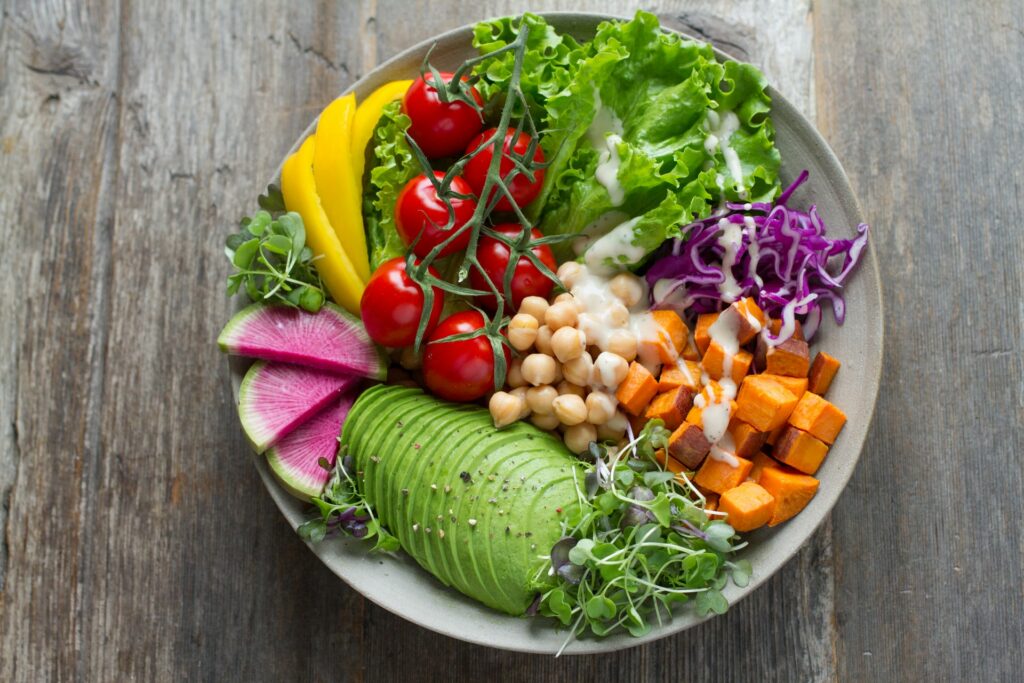A recent study suggests that following a Vegan diet might help slow down biological aging and protect DNA from damage. This finding comes from a small but intriguing study involving 21 pairs of identical twins. The research looked at how a short-term vegan diet affects aging and changes to DNA.
Study Details and Methodology about Vegan Diet
The study, conducted by a team of researchers in the U.S., involved 21 pairs of identical twins. For eight weeks, one twin from each pair followed a vegan diet.
While the other twin ate an omnivorous diet, which includes meat, dairy, and eggs. After eight weeks, the researchers compared the effects of these diets on the twins’ DNA and biological age.
Key Findings for Vegan Diet
One of the key findings was that the vegan diet appears to reduce DNA methylation, a process where gene expression becomes less effective over time. This process, known as epigenetic aging, was observe to be lower in those who follows a vegan diet compare to their omnivorous twins. In simpler terms, it seems that the vegan diet might help keep genes functioning better for longer.
Additional Observations about Vegan Diet
The study, published in Biomedical Central Medicine, highlights that more research is needs to fully understand these results. The researchers pointed out that the vegan group lost an average of 2 kg more than their omnivorous counterparts. Weight loss itself can also contribute to slower epigenetic aging, so this factor needs to be considered.
Impact of Weight Loss and Caloric Intake
In addition to the weight loss, the vegan group also had a lower caloric intake. While the researchers believe the vegan diet could be link to slower biological aging. They caution that larger studies are needs to confirm these findings and better understand the long-term effects.
Advances in Biomedical Technology
Recent advances in biomedical technology have allowed scientists to explore the molecular mechanisms behind aging. Aging is associate with increased healthcare costs and financial stress, making it an important area of research. While many studies focus on lifestyle changes, sleep, and social factors.
The impact of diet on a molecular level is still not fully understood.
Understanding DNA Methylation
DNA methylation is a process where small molecules calls methyl groups added to DNA. This doesn’t change the DNA itself but affects how genes are express. These changes, known as epigenetic changes, are influenced by environmental factors, including diet. Certain patterns of DNA methylation used to estimate biological age and predict age-related health outcomes.
Study Design and Participant Details
The study conducted in 2022 over an eight-week period, with 21 pairs of healthy identical twins, 16 of whom were women, and the average age was 40. Identical twins have the same genetics, which makes comparing the effects of different diets more accurate.
Phases of the Study
The study divided into two phases. During the first four weeks, the omnivorous group ate meat, eggs, and dairy, while the vegan group consumed only plant-based foods. Participants were regularly checks for factors like fatigue, physical activity, stress, and overall health.
Blood Sample Analysis and Results
Blood samples were taken at the four-week and eight-week marks to analyze changes in DNA. The researchers assessed the biological age of 11 organ systems, including the heart, lungs, kidneys, liver, and brain. They also measured several other biological aging markers.
Findings on Epigenetic Age and Blood Markers
The study found that the omnivorous group did not show significant changes in epigenetic age, but the vegan group did experience a slowdown in age acceleration. Additionally, the vegan group showed an increase in basophils, a type of white blood cell that helps fight off infections.
Mood and Sleep Quality of Vegan Diet
On the other hand, the omnivorous group had increased levels of serotonin and adenosine, which are important for mood regulation and sleep. This suggests that animal-based foods might contribute to better mood and sleep quality.
Considerations and Potential Risks
The researchers also noted that vegans and vegetarians might be at risk of vitamin B12 deficiency, which is common in plant-based diets. At the end of the study, the group had consumed about 200 fewer calories per day and lost an average of 2 kg more than the omnivorous group. Although weight loss and lower caloric intake may also impact biological age, the vegan group specifically showed reduced aging effects.
Overall, the study found that the vegan diet included less saturated fat, more polyunsaturated fats, and more fiber than the omnivorous diet. These factors may play a role in the observed differences.
Read Also – Heart Healthy Superfoods: 5 Seeds That You Must Consume To Keep Arteries Clean
Conclusion
While this study offers promising insights into the effects of a vegan diet on biological aging and DNA health, the authors stress the need for further research to explore these findings more deeply and understand the long-term health outcomes of different diets.

